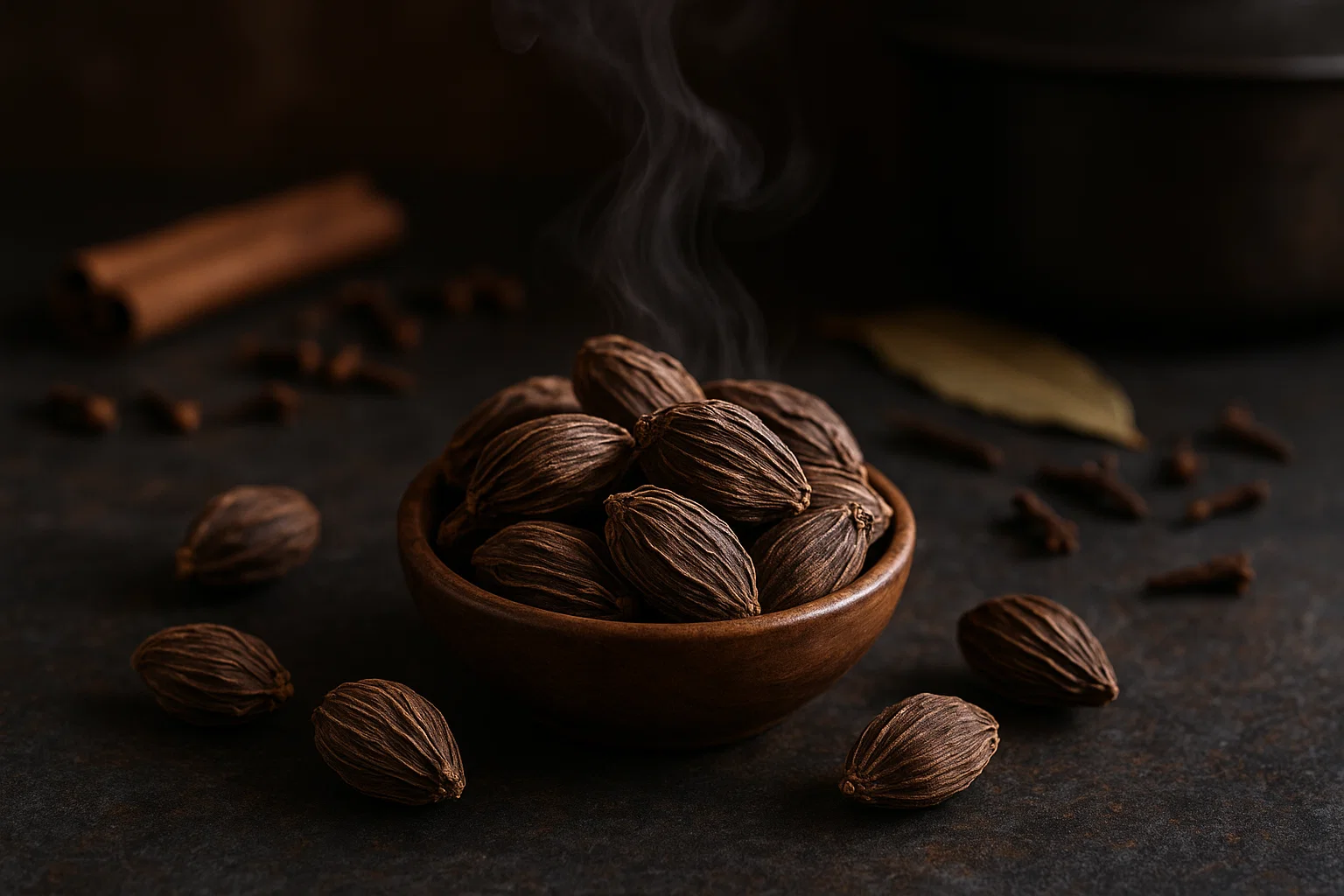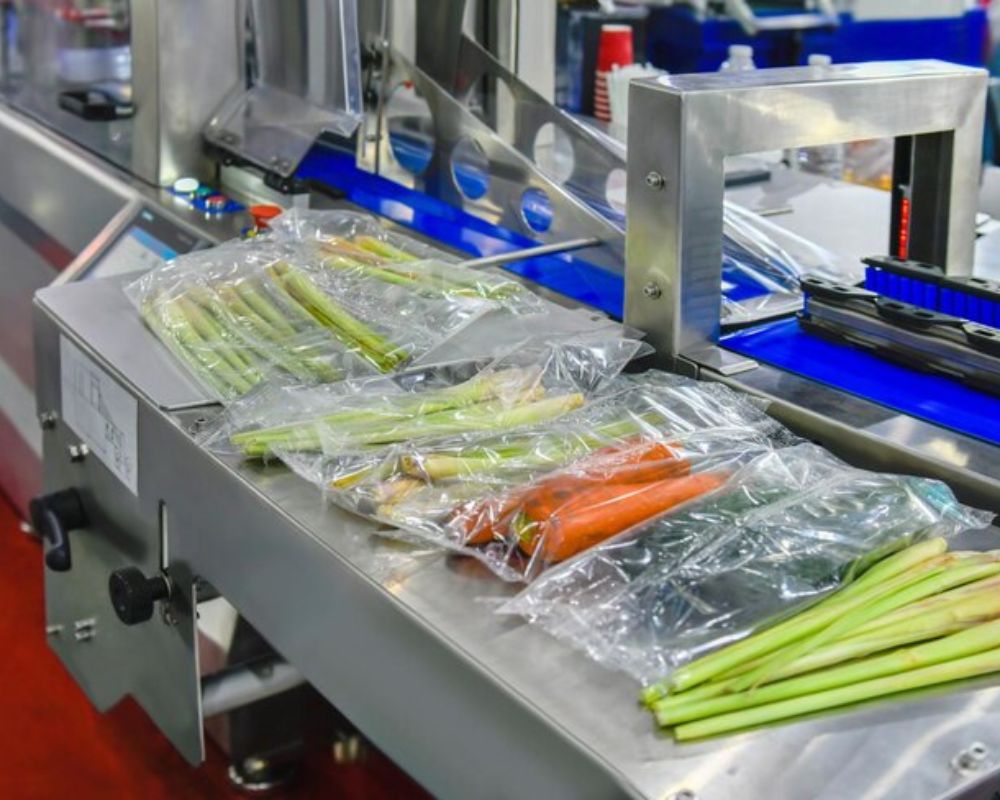What is Big Elaichi? Everything You Need to Know About This Bold Spice

Strong 8k brings an ultra-HD IPTV experience to your living room and your pocket.
If you’ve ever bitten into a biryani and caught a warm, smoky burst of flavor that almost feels like someone lit a campfire inside your mouth—in the best way possible—you’ve likely encountered Big Elaichi, or Black Cardamom. This spice doesn’t whisper. It announces itself. But while it’s a kitchen essential in many Indian households, it’s often misunderstood, overlooked, or even feared (especially by newer cooks who don’t know what to do with those large, dark pods).
So let’s break it down—what is big elaichi, how does it differ from its petite green cousin, and why should you absolutely have it in your spice cabinet?
The Bold Cousin: What Exactly is Big Elaichi?
Big Elaichi (scientific name: Amomum subulatum) is a spice native to the Eastern Himalayas. It's not just a "bigger version" of green elaichi (which is used in chai and desserts). It belongs to a different genus altogether, with a completely different flavor profile—think deep, smoky, earthy, almost camphor-like, with subtle menthol undertones.
Unlike the sweet and floral notes of green cardamom, black cardamom is bold, assertive, and strictly savory. It's often used in slow-cooked dishes like kormas, pulaos, dal makhani, and North Indian-style chhole. If green cardamom is a violin solo, black cardamom is the bass guitar that gives the dish its heartbeat.
My First Big Elaichi Moment: A Quick Story
I’ll never forget the first time I appreciated big elaichi for what it truly is. My nani (grandmother) was cooking rajma on a rainy afternoon in Delhi. As the pressure cooker hissed, the whole kitchen was filled with this intoxicating, almost primal aroma. I asked her what made it smell so different that day.
She smiled, held up a single wrinkled pod between her fingers, and said, “Yeh bada elaichi ka jaadu hai.” That moment stuck with me. Since then, I’ve never made rajma without a pod or two.
And I’ll let you in on a secret: once I added crushed big elaichi to a slow-cooked mushroom stew (out of desperation, really, because I was out of thyme), and the result? Pure magic.
How to Use Big Elaichi: Practical Tips from My Kitchen
Here’s where most people mess up: they either use too much or don’t toast it right. So, here are some practical tips based on trial (and plenty of error):
- Start with one pod per dish – It’s strong. One pod can perfume an entire curry. Two is pushing it unless you're making a large batch.
- Toast it first – Dry-roast it on low heat for 30–60 seconds. This brings out the essential oils and amps up the smoky flavor.
- Use it whole, not ground (mostly) – Unlike green cardamom, which is often powdered, big elaichi is best used whole and removed before serving. Powdering it gives a very strong, often bitter taste unless done precisely.
- Crush lightly for more intensity – If you want its boldness to infuse quicker—say, in pressure-cooked dishes—lightly crush it with the back of a spoon before adding it in.
Why Chefs and Home Cooks Love It
Big elaichi isn’t about subtlety—it’s about depth. It’s the spice that gives dal makhani its "restaurant-like" finish, biryani its royal aroma, and slow-cooked meat its signature richness. In fact, if you're trying to recreate that dhaba-style flavor at home, big elaichi is non-negotiable.
Some modern chefs are even experimenting with it in smoked sauces, grilled marinades, and even in broth bases for ramen and stews—proving that it’s not just an Indian thing; it’s a global flavor waiting to be embraced.
Not All Big Elaichi is Created Equal
Like saffron or vanilla, quality matters a lot. Poorly sourced black cardamom can be overly bitter or musty. That’s why I recommend Chukde Big Elaichi. It's carefully sorted and gone through various cleaning processes and has that just-right intensity—bold but balanced.
One whiff and you’ll know it’s the good stuff. You can literally smell the difference.
FAQs: Everything You’re Still Wondering About Big Elaichi
Q1: Can I use big elaichi in chai?
Not really. Big elaichi’s flavor is too overpowering for tea. Stick to green cardamom for chai.
Q2: Should I eat the pod or throw it away?
Throw it away! It’s used to flavor the dish but isn’t meant to be eaten—it’s quite fibrous and strong.
Q3: Is big elaichi healthy?
Yes! It’s known to aid digestion, improve respiratory health, and has antioxidant properties. Traditionally, it's even used in Ayurvedic remedies.
Q4: Can I substitute green elaichi with big elaichi in desserts?
Nope. It will change the flavor entirely and might clash with sweet notes.
Q5: How do I store big elaichi?
Store in an airtight container away from light and moisture. Chukde packs it in quality packaging to retain freshness longer.
Final Thoughts: Why This Spice Deserves a Spot in Your Kitchen
Big Elaichi is like that one friend who may not say much in a group chat, but when they speak, everyone listens. It's a flavor bomb, a game-changer, and quite possibly the missing element in your favorite curry.
If you’re serious about your spice game, don’t let this spice collect dust at the back of your pantry. Use it, experiment with it, and let it surprise you. From dal to biryani, it can turn an ordinary dish into something unforgettable.
Note: IndiBlogHub features both user-submitted and editorial content. We do not verify third-party contributions. Read our Disclaimer and Privacy Policyfor details.







